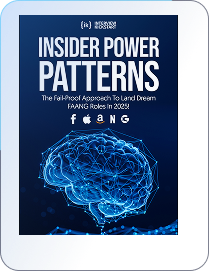Pega is a widely-used, low-code business process management tool written in Java. If you’re a software developer interviewing for positions in business process application development, knowing answers to popular Pega interview questions is important.
Pega is one of the most extensively-used tools for building enterprise applications, automating business and software processes, and creating data-driven decision-making frameworks. Several companies use the tool to build enterprise applications that drive business decision-making and enhance customer engagement.
To help you prepare for your upcoming interview, we’ve compiled a list of commonly-asked Pega interview questions for experienced developers and freshers. If you are preparing for a tech interview, check out our technical interview checklist, interview questions page, and salary negotiation e-book to get interview-ready!
Having trained over 17,000 software engineers, we know what it takes to crack the most challenging tech interviews. Our alums consistently land offers from FAANG+ companies. The highest ever offer received by an IK alum is a whopping $1.267 Million!
At IK, you get the unique opportunity to learn from expert instructors who are hiring managers and tech leads at Google, Facebook, Apple, and other top Silicon Valley tech companies.
Want to nail your next tech interview? Sign up for our FREE Webinar
Let’s go ahead and look at some common Pega interview questions asked at technical interviews.
We’ve listed the commonly-asked Pega interview questions and answers, and also popular Pega interview questions for experienced developers and freshers.
Here’s what we’ll cover:
Whether you’re a fresher or an experienced programmer or appearing for an enterprise-application development role, you must know answers to commonly-asked Pega interview questions.
This section will look at some commonly-asked Pega interview questions and answers.
Pega essentially offers four different types of studios –

Studios, also called workspaces, are used to speed-up application development and enable users to work with role-based capabilities. Role-based capabilities help different types of developers perform specific functions with the tool.
This is one of the most common Pega interview questions asked at technical interviews. The different types of classes available in Pega are –

DCO in Pega stands for Direct Capture of Objectives. It consists of resources, tools, application artifacts, and processes for acquiring, storing, and processing data on the integrated Pega platform.
This, again, is one of the most common Pega interview questions asked at technical interviews. The different types of layouts available in Pega are –

There are fundamentally two types of assignments – the Work-List assignment and the Work-Basket assignment. These assignments are stored in individual worklists in Pega.
If you’ve just graduated from college as a software engineer, knowing answers to popular Pega interview questions for freshers can set you apart from the competition. To help you prepare for your interview, below are some commonly asked Pega interview questions for freshers.

Experienced developers who specifically deal with enterprise application development and automation must know answers to advanced Pega interview questions.
We’ve compiled this list of Pega interview questions for experienced programmers to help you prepare for your upcoming interview.

Practice these Pega interview questions to get ahead in your prep and set yourself apart from the competition!

Q1. What is Pega?
Pega is a software tool written in Java, used specifically to build enterprise applications and automate data-driven business processes.
Q2. Do you need to know how to code to use Pega?
Pega is a low-code platform for business process application development. This means that you don’t need to be an advanced coder to build applications. That’s because Pega offers a unified design studio that does the coding work while designing and building applications.
Q3. Are Pega interview questions asked at software developer interviews?
Yes, Pega interview questions are asked at Java developer interviews, especially in positions that involve enterprise application development and design.
Q4. In what language is Pega written and developed?
Pega is written and developed in the Java programming language.
Q5. What is the average salary of a Pega developer in the United States?
According to Glassdoor.com, the average Pega developer salary in the US is $99,504 per year.
Are you getting ready for your upcoming technical interview? Register for our technical interview webinarto get the best guidance and insight from highly experienced professionals on how to crack tough technical interviews and land high-paying offers from the biggest companies.
At Interview Kickstart, we’ve trained thousands of engineers to land lucrative offers at the biggest tech companies. Our instructors, who are FAANG hiring managers, know what it takes to nail tough tech interviews at top technology companies.
Register for our FREE webinar to learn more.
â€
Attend our free webinar to amp up your career and get the salary you deserve.

693+ FAANG insiders created a system so you don’t have to guess anymore!

100% Free — No credit card needed.

Time Zone:






Get your enrollment process started by registering for a Pre-enrollment Webinar with one of our Founders.

The 11 Neural “Power Patterns” For Solving Any FAANG Interview Problem 12.5X Faster Than 99.8% OF Applicants
The 2 “Magic Questions” That Reveal Whether You’re Good Enough To Receive A Lucrative Big Tech Offer
The “Instant Income Multiplier” That 2-3X’s Your Current Tech Salary

The 11 Neural “Power Patterns” For Solving Any FAANG Interview Problem 12.5X Faster Than 99.8% OF Applicants
The 2 “Magic Questions” That Reveal Whether You’re Good Enough To Receive A Lucrative Big Tech Offer
The “Instant Income Multiplier” That 2-3X’s Your Current Tech Salary
Just drop your name and email so we can send your Power Patterns PDF straight to your inbox. No Spam!
By sharing your contact details, you agree to our privacy policy.
Time Zone: Asia/Dhaka

We’ve sent the Power Patterns PDF to your inbox — it should arrive in the next 30 seconds.
📩 Can’t find it? Check your promotions or spam folder — and mark us as safe so you don’t miss future insights.
We’re hosting a private session where FAANG insiders walk through how they actually use these Power Patterns to crack interviews — and what sets top performers apart.
🎯 If you liked the PDF, you’ll love what we’re sharing next.
Time Zone:

